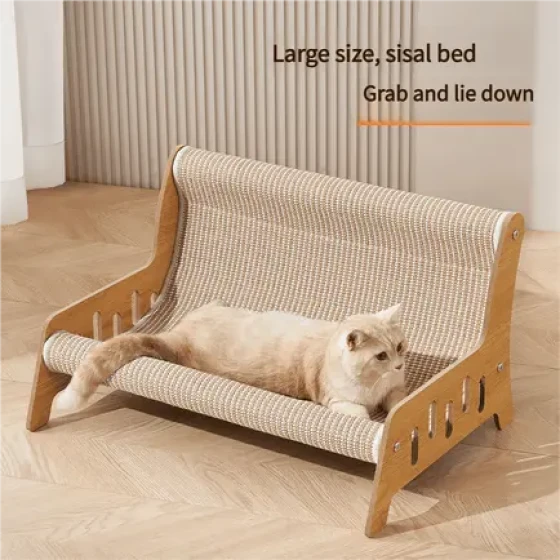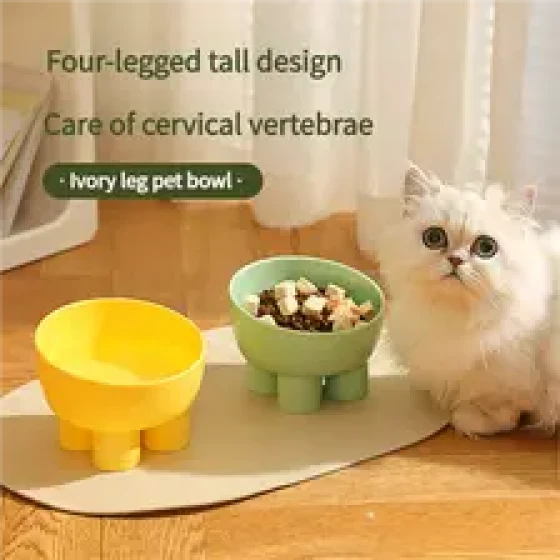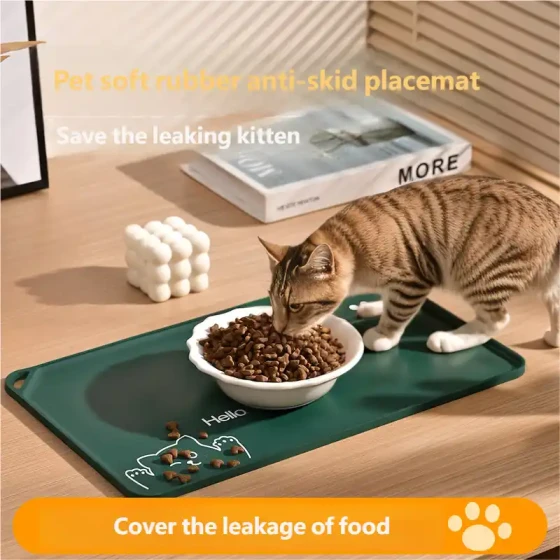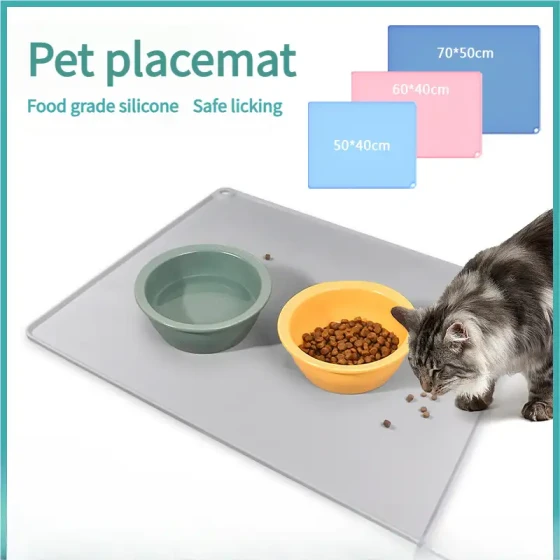Why Do Cats Get More Irritable the More You Raise Them_5 Key Reasons for Changes in Cat Personality
As cats grow older, some owners may find that their cats seem to have worse tempers, no longer as gentle and clingy as when they were kittens,甚至变得易怒、有攻击性. This is not "becoming more rebellious the more you raise them." Behind changes in a cat's personality actually lie multiple possible reasons that require owners to carefully observe and understand. Changes in cat personality may be related to physical function decline, pain, cognitive dysfunction brought by aging, as well as environmental changes and stress factors. Timely detection and understanding of these reasons are essential to better care for our cats and allow them to have a higher quality of life.
5 Key Reasons for Changes in Cat Personality
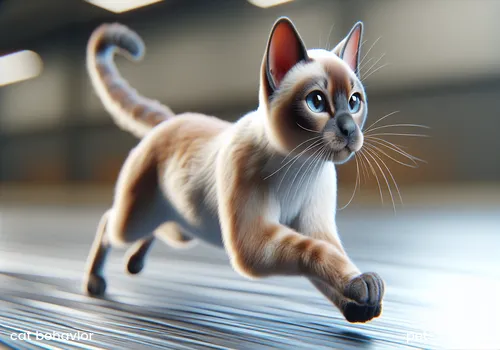
A cat's personality is not immutable; besides individual differences and early socialization, the following five key reasons may also cause a cat's temper to "worsen":
1. Physical Discomfort and Pain
This might be one of the most common yet easily overlooked reasons for worsening temper in cats. Just as humans become irritable when sick or in pain, cats may show defensive or even aggressive behavior to avoid aggravating their discomfort or pain. Studies show that up to 90% of senior cats may suffer from arthritis. Joint pain can make them unwilling to be touched or moved, leading to irritability. Besides arthritis, dental problems, urinary diseases, hyperthyroidism, and other illnesses can cause pain or discomfort, thereby inducing behavioral changes including increased aggression.
If your cat suddenly refuses to be held, hisses or bites when certain areas are touched, or shows symptoms such as loss of appetite, changes in elimination habits, or sluggish movement, these may all be signs of physical discomfort. At this time, taking your cat to a veterinary hospital for a thorough physical examination is crucial to rule out potential health issues.
2. Decline in Physiological Functions Due to Aging
Time is a "butcher's knife," and the same goes for cats. As cats age, their bodily functions gradually decline. Sensory abilities such as vision, hearing, and smell may deteriorate. This makes them more sensitive and uneasy about changes in their surroundings, more easily startled, resulting in irritability or defensive behavior. Hearing loss can cause them not to hear their own calls clearly, so they may meow louder. Blurred vision may cause confusion or even getting lost in familiar environments. These factors can make originally gentle cats feel insecure, and their temper may worsen accordingly.
Senior cats also experience reduced activity levels, no longer as lively or active as when young, getting tired easily and preferring long naps. This is not laziness but a normal manifestation of physiological decline. Forcing them into excessive activity or disturbing their rest may also provoke dissatisfaction and opposition.
3. Cognitive Dysfunction (Feline "Senile Dementia")
This is a disease similar to Alzheimer's in humans, mainly affecting senior cats' cognitive abilities. Research indicates about 28% of cats aged 11-14 show signs of at least one cognitive dysfunction, and more than 50% of cats over 15 show such signs.
Cats with cognitive dysfunction may show the following behavioral changes:
- Disorientation and Confusion: Getting lost in familiar settings, staring blankly at certain spots, or getting "stuck" behind furniture.
- Memory Decline: Forgetting the location of the litter box, eliminating outside the litter box, or even failing to recognize familiar people or pets.
- Changes in Interaction: Losing interest in interacting with humans or other pets, or becoming overly clingy and dependent on the owner.
- Disrupted Sleep-Wake Cycle: Sleeping more during the day, being abnormally active at night, and continuously vocalizing.
- Anxiety and Irritability: Easily feeling uneasy and irritable, with worsened temper.
- Decreased Activity and Self-Care Ability: Losing curiosity about surroundings, reducing exploration and play, neglecting grooming, and possibly having diminished appetite.
If your senior cat shows these signs, it is advisable to consult a veterinarian promptly. While cognitive dysfunction cannot be cured, environmental adjustments, dietary management, and medication can help slow disease progression and improve quality of life.
4. Environmental Changes and Stress
Cats are territorial animals with a strong dependence on environment and sense of security. Any environmental changes can cause stress, triggering behavioral changes through stress responses. Common stressors include:
- Moving or Rearranging the Home: Unfamiliar environments make cats feel uneasy and nervous.
- New Family Members: New pets or humans may disrupt the original balance, causing cats to feel threatened or stressed.
- Changes in Routine: Sudden changes in schedule, feeding times, or interaction methods can make cats uncomfortable.
- Noises and Overstimulation: Sudden loud noises or continuous noise can frighten sensitive cats.
- Lack of Security: If a cat feels its territory is threatened or lacks interaction with the owner, stress may develop.
Stressed cats may display hiding, increased aggression, inappropriate elimination, loss of appetite, or over-grooming. Providing a stable, safe, and quiet living environment, maintaining routine, and when necessary, using cat-specific calming products (such as Feliway) can help relieve their stress.
5. Social Problems
Especially in multi-cat households, social relationships among cats can affect their temper. Conflicts, bullying, or competition between cats may cause irritability and aggression. Competition for resources (food, water, litter boxes, resting areas) is a common cause of conflict.
Some cats may be naturally less social or have had inadequate socialization early in life, causing them to feel anxious or uneasy around other cats or humans. Others may try to establish their own "dominion" at home, also showing aggressive behavior.
If tension exists among cats, try increasing resource availability (such as providing multiple litter boxes, feeding bowls, and water bowls), ensuring each cat has enough space and resources. Sometimes, under guidance from a veterinarian or professional pet behavior trainer, social training can improve relationships between cats.
How to Deal with a Cat's Increasingly Bad Temper?
When you notice your cat's temper worsening, first remain calm and patient. Do not punish or scold the cat, which will only exacerbate the problem. Instead, try to understand the reasons behind their behavior.
- Seek Veterinary Care Promptly: If the behavioral change occurs suddenly or is accompanied by other signs of physical discomfort, be sure to take them to the vet immediately. Ruling out potential health issues is the key first step.
- Observe and Record: Carefully observe your cat's behavioral changes: when do they get angry? Is it towards specific people or in certain situations? Are there other abnormal symptoms? Recording these details helps vets or behavior trainers make more accurate assessments.
- Provide Security: Ensure your cat has a safe, quiet "haven" at home where they can retreat when feeling stressed or uneasy. Do not force them to interact with people or pets they dislike.
- Maintain Environmental Stability: Avoid sudden changes at home; if moving or introducing new members, gradual introduction is important.
- Increase Interaction and Enrich Environment: Spend time playing with your cat, provide various toys and cat trees to enrich their life, alleviating boredom and stress. Some puzzle toys can also stimulate cognitive function in senior cats.
- Patience and Understanding: Behavioral changes may take time and patience to improve. Understand that they may be uncomfortable or uneasy, not intentionally opposing you.
Frequently Asked Questions
- Q: My cat was very clingy when young but less so after growing up; does this mean their temper has worsened?
A: Kittens are usually more clingy than adult cats. Adult cats become more independent and prefer their own space. This is a normal growth change, not necessarily meaning a worse temper, just a shift in social needs. Of course, if accompanied by other abnormal behaviors, further observation and judgment are needed. - Q: Does neutering affect a cat's temper?
A: Neutering usually stabilizes emotions. For aggressive or bad-tempered cats, neutering may make them calmer. However, it does not completely change their original personality. - Q: Do cats hold grudges?
A: Although cats do not "hold grudges" like humans, they remember unpleasant experiences and people or things that make them feel unsafe. If you have treated your cat badly (e.g., hitting or scolding), they might become defensive or avoidant towards you. - Q: Is inappropriate urination intentional?
A: Inappropriate urination is usually not deliberate revenge but a sign of physical discomfort, stress, environmental maladaptation, or dissatisfaction with the litter box. Finding and resolving the cause promptly is important, such as checking litter box cleanliness, litter type, or taking the cat for a health exam. - Q: Is it normal for senior cats to meow louder?
A: Senior cats may meow louder due to hearing loss, as they cannot hear their own voice well. It can also be a sign of cognitive dysfunction, pain, confusion, or anxiety. If this happens, taking your cat to the vet is recommended.
In summary, a worsening cat temper is not accidental and often has physiological or psychological causes. As responsible owners, we should observe more, learn more, understand our cats' behavioral language, and seek professional help when necessary to jointly protect our "masters."
